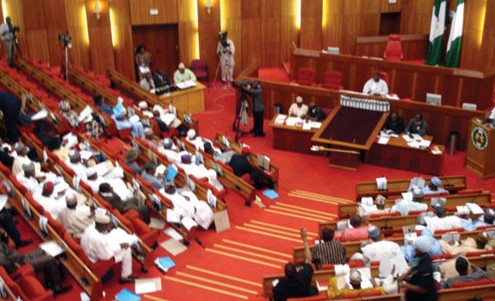Fidelity Bank Plc has released its condensed unaudited financial statements for 2023, with a profit before tax of N122.15 billion, representing a 128% growth from the N53.68 billion recorded in FY 2022.
The bank also grossed N552. 77 billion, marking a 64 percent growth from the N337. 05 billion earned for FY 2022.
The bank’s net interest income of N274.86 billion posted in FY 2023 was notably 82% higher than the N152.70 billion net interest income posted in 2022.
But, analysts have expressed worries that the bulk of the Bank’s investments and credits for which huge profits were made were skewed in favour of sectors and instruments, considered as exclusive preserves of high networth individuals and corporate organizations in the society.
Besides, part of of the investments were regarded as ‘shortcut’ devoid of real financial intermediation.
Specifically, a closer analysis of the financials showed that the bank’s credit was mostly concentrated in oil and gas, with N1.11 trillion in loans and advances to the oil and gas sector, representing 36% of the bank’s total loans and advances.
Similarly, the bank’s total investment in government securities also increased by a whopping 112 percent to N1.39 trillion in FY 2023, from the N657.26 billion recorded in FY 2022.
In fact, the bulk of the bank’s investment in government securities was in treasury bills, considered as most risk free, which increased to N565.22 billion in 2023, marking a 102 percent increase from the N280.28 billion posted in FY 2022.
Interestingly, in an economy that most entrepreneurs, particularly, smaller ones are starved of credit facilities, the bank’s loans and advances to customers amounted to N3.09 trillion (N2.12 trillion, +46.2%), while
deposits from customers recorded N4.05 trillion (N2.58 trillion, +57%)
The analysts say the onus is on the Central Bank of Nigeria (CBN) to monitor the industry closely as some of the other banks that had declared their financials, particularly those with offshore subsidiaries, similarly made fortunes from the ‘misfortunes’ of the local currency, naira, as revaluation against foreign currencies, particularly, dollar, cartapulted them to the ’emergency’ billionaires club in dollar terms.
The logic is that, rather than creating credits and advancing facilities to the critical sectors of the economy as well as the small and medium scale enterprises, the banks would opt for safest haven, investing in government backed instruments.
Key Highlights FY 2023 (FY 2022, % Change)
Gross earnings: N552.77 billion (N337.05 billion, +64%)
Net interest income: N274.86 billion (N152.70 billion, +82%)
Net interest income after credit loss expense: N208.49 billion (N147.25 billion, +42%)
Profit before income tax: N122.15 billion (N53.68 billion, +128%)
Income tax: N20.77 billion (N6.95 billion, +199%)
Profit for the year: N101.39 billion (N46.72 billion, +117%)
Total comprehensive income for the year: N120.76 billion (N42.10 billion, +187%)
ALSO READ:As CBN Dithers On Policy Issues, Fed Gets Reality check, Saps Fast Rate-Cut Bets
Earnings per share: 316.83 kobo (161.32 kobo, +96%)
Cash and cash equivalents: N383.44 billion (N300.34 billion, +28%)
Loans and advances to customers: N3.09 trillion (N2.12 trillion, +46.2%)
Deposits from customers: N4.05 trillion (N2.58 trillion, +57%)
Total assets: N6.23 trillion (N3.99 trillion, +56%)
Total equity: N433.33 billion (N314.36 billion, +38%)
Return on Equity: 27.30% (15.58%, +1172 bps)










